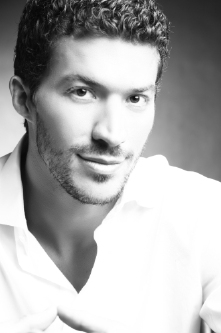
Don't Stand For Domestic Abuse
Thousands of women and men suffer from domestic abuse each year and recently the laws have been changed for domestic violence to mental torment, mind games and exercising financial control over a spouse.
This will give many women and men more ground to stand on when reporting a domestic violence case and will hopefully encourage them to stand up for their rights and leave their abusive partner.
Here, Dr Massimo Stocchi (harleystreetpsychology.com) gives his insight into why a person may be fearful to leave a relationship.
He says, “The practice of ending a relationship often leaves most people fearing common questions, such as, will anyone love me again? What have I done to deserve this? Am I not good enough? What do I need to change about myself?
These are all questions that indicate a fragile sense of self, which often occurs from feeling rejected and not good enough when a relationship ends. However, when the tables tip and things become chaotic and abusive, be mindful that you haven’t fallen into the cycle of violence.”
Dr Stocchi believes the cycle of violence to be:
• Abuse – the abuser initiates aggressive, verbal, physical or emotional abuse which is designed to control and oppress the victim.
• Guilt – the abuser feels guilty for inflicting abusive behaviour, primarily out of concern of being found to be guilty of abuse rather than feelings of sympathy for the victim.
• Excuses – there is a particular rationalisation for the behaviours which develops including blame and excuses to justify what has been inflicted.
• Fantasy and planning – this is used to justify what the victim has done wrong and how he or she will be punished, and developing a plan to realise the fantasy.
• Set-up – the plan is “put in motion” (by the abuser).
Dr Stocchi explains that the abuser will assert their power and control over the abused, who will then fall into this cycle and end up justifying the abusers actions, making it impossible for the abused to leave.
Dr Stocchi says, “The underlying problem with being the recipient of abuse is that we allow another to convince us that the abuse is justified and this feeds into our sense of deservingness.
“Once this final stage is reached it becomes very difficult to get out of these cycles of abuse because there is an immediate fear that life cannot go on without this person in our lives and you cannot function without them being there.
“Another factor to consider which makes it very difficult to leave these kinds of relationships is that we have placed more value on the other individual (abuser) rather than trying to have a balanced and mutual relationship.”
Although it’s a daunting thought and often incredibly difficult, it’s important that if you’re being abused, you get out of the relationship.
Dr Stocchi has put together a checklist which will help you evaluate your relationship:
1. Do you feel your image is tarnished in the face of others (by the abuser) either verbally, emotionally or physically?
2. Have you ever been hit or beaten?
3. Are you spoken to in a manner which demeans and hurts you emotionally?
4. Do you feel controlled and manipulated into things that you do not want to do?
5. Do you fit into following any of the cycles mentioned above and if you are how does it contrast others relationships around you?
6. Do you feel you have to protect him from others finding out what he has done to you?
7. Do you feel trapped in the relationship and not knowing how to end it or get out because of fearing the consequences if you try?
8. Does he not allow you to be yourself and explore all areas of your life and base life on his terms?
Dr Stocchi says, “A yes to any of these questions indicate that there is something of concern within the relationship and it would be highly recommended to seek professional assistance or from someone who you can trust to provide you with a different perspective on what is happening in your relationship.”
If you’re a victim of domestic violence then you can get help by visiting www.nationaldomesticviolencehelpline.org.uk or call their Freephone helpline on 0808 200 247.
Cara Mason @FemaleFirst_UK
tagged in relationships Couples Abuse Domestic Abuse
